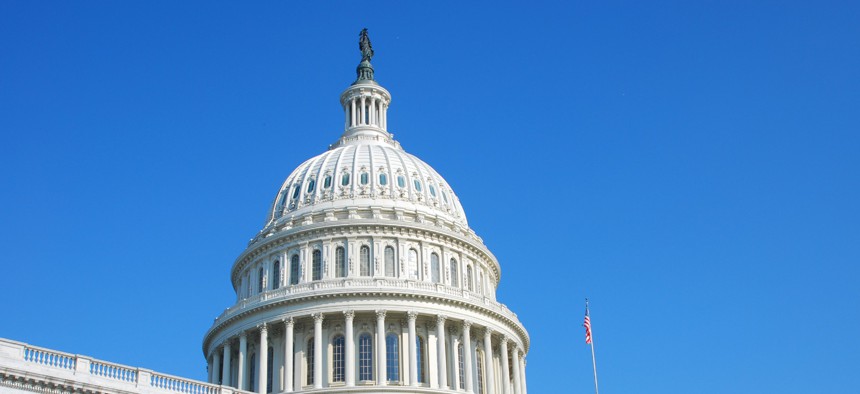Once again, lawmakers ask if it's time to codify the federal CIO role

Getty Images
Federal CIO Clare Martorana told a House panel about the importance of involving technologists in decision-making early and often.
The role of the federal chief information officer isn't established in law, but lawmakers asked if it should be during a Friday House hearing on federal technology.
The hearing coincided with the release of a new report from the Government Accountability Office on the role of the federal CIO and agency CIOs relative to similar private sector positions.
GAO recommended that Congress consider formalizing the position and its responsibilities and authorities. Legislation to codify the role of the federal CIO previously passed the House of Representatives in 2019.
Federal CIO Clare Martorana didn't give a yes or no answer to the question of whether her position and authorities should be enshrined in law, but said a key priority for her is making sure that technologists are involved in agency decision-making.
"We are providing technologists with the executive support needed to have a voice in agency C-suites," she said during the hearing. "The government experience will improve by having technologists early and often in agency planning. Technologists are key to vetting strategies to drive down the failure rate of IT investments and reduce administrative burden for the federal workforce."
Martorana pointed to changes made at the Technology Modernization Fund to more deeply involve techies in the process.
"We actually have redesigned the entire TMF process," she said. "When I joined, we had three staff on the [General Services Administration] side that were mostly doing financial administration of the TMF."
Now there are technologists in the TMF program management office that work with agencies on things like reviewing whether or not an agency has the staff or procurement tools in place to do the work, Martorana said.
"I think within the next year you are going to see such dramatically improved outcomes from the TMF projects because we are managing them in a completely different way than we did previously by having technologists upfront in every single part of the investment," she said.
Lawmakers also had questions about how agency-level CIOs specifically fit into the hierarchy of their agencies. Agencies are required to report on whether or not their CIO reports directly to the head or deputy at their agency as part of the Federal Information Technology Acquisition Reform Act (FITARA)
"We felt empowerment… was about reporting sequences," said Subcommittee Chairman Gerry Connolly (D-Va.), a co-sponsor of the 2014 FITARA legislation. "We want to see every primary CIO report to the head of the respective agency because he or she is then empowered and everybody knows it.".
"FITARA has been critical in getting CIOs into the right conversations at the right time," Martorana said. "I really think that it comes down to how technology is thought of as the decision-making process happens in an agency. You have to partner with your mission partners, with your program partners, from the inception," she continued. "I think this is an area we can continue to work together on and really improve our overall delivery of it across the government."
But implementation challenges remain for this collaboration between CIOs and other senior executives throughout government, the new GAO report says.
Former federal CIOs told GAO that they had "difficulty achieving meaningful collaboration with other managers."
GAO recommended that the OMB director have the federal CIO "increase emphasis placed on shared collaboration between agency CIOs and other senior executives to accomplish agency-wide and government-wide goals." The oversight agency also recommended that the federal CIO make sure that managerial skills "have an appropriate role in the hiring criteria for agency CIOs."






